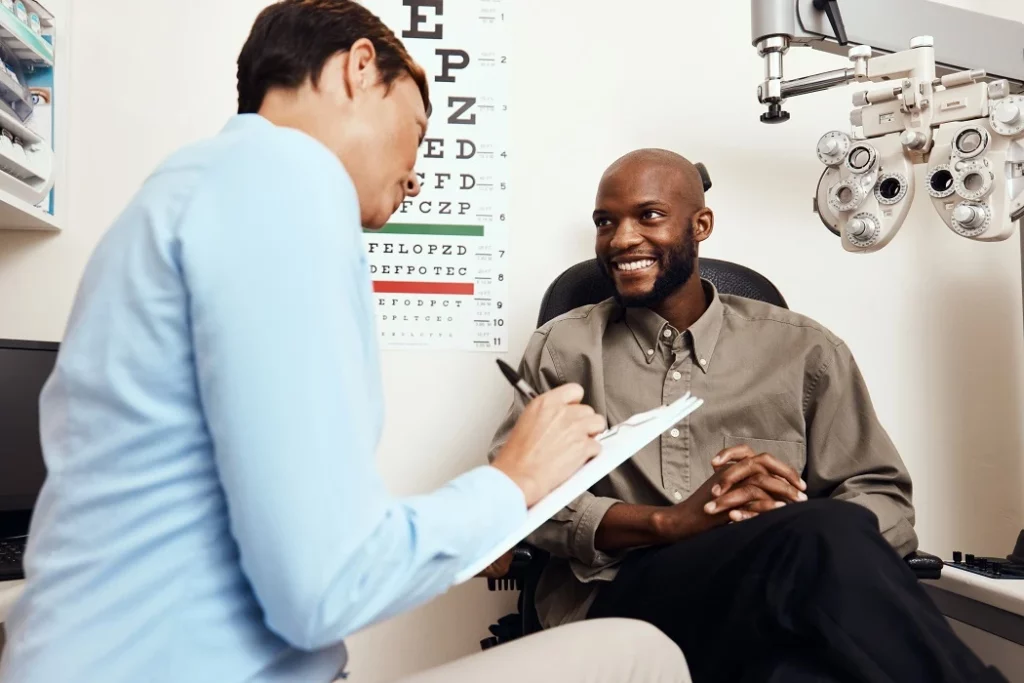All Categories
Featured
Table of Contents

Routine eye assessments are vital for maintaining great vision and finding potential eye health and wellness problems early. However, the regularity of these tests can vary significantly based upon an individual's age, way of life, and total health and wellness. Comprehending the recommended schedule for eye exams can help make sure that individuals of any ages receive suitable treatment and monitoring for their eye health and wellness.
Newborns and Toddlers (0-2 Years)
For toddlers and babies, eye examinations are crucial for detecting any potential vision troubles early on. The American Academy of Ophthalmology advises that a kid's initial eye examination must happen at around six months old. During this initial go to, the eye care specialist will evaluate the child's aesthetic growth and check for any obvious eye concerns.Following this initial examination, it is recommended that children have an additional eye examination at age 3. This browse through will certainly concentrate on evaluating the child's total aesthetic function, including eye positioning and the capacity to track objects. If no problems are found, the following test ought to be set up before the youngster begins school, generally around age 5 or six.
School-Aged Kids (6-18 Years)
As soon as youngsters reach college age, regular eye tests ought to be arranged every one to two years. Vision is crucial for discovering and development, and many schools perform vision testings. These testings do not change a detailed eye exam by an eye treatment expert.For kids included in sports or tasks calling for considerable aesthetic emphasis, yearly eye tests may be recommended. In addition, if a kid exhibits indications of vision problems-- such as trouble reading, squinting, or regular migraines-- a see to the eye medical professional ought to be set up as soon as possible.
Youthful Adults (19-39 Years)
Young person typically have fewer vision modifications than older age, but normal eye examinations stay vital. The basic recommendation is to set up an eye test every 2 years throughout this period. People with particular risk elements-- such as a family members history of eye condition, diabetes mellitus, or those who wear call lenses-- should think about annual eye examinations.Additionally, those that invest significant time on electronic tools may experience electronic eye strain. If signs and symptoms such as dryness, fatigue, or blurred vision happen, it might be smart to see an eye treatment professional faster.
Adults (40-64 Years)
As people get in middle age, the probability of developing vision troubles boosts. Grownups aged 40 to 64 should arrange eye examinations each to two years. This age may start to experience presbyopia, an all-natural age-related problem that makes it testing to concentrate on close things. Eye tests can likewise aid find various other common age-related conditions such as glaucoma, cataracts, and macular deterioration.If individuals in this age group have risk factors like hypertension or diabetic issues, they may call for even more frequent assessments to check their eye health very closely.
Seniors (65 Years and Older)
For elders, regular eye tests come to be much more essential. The American Optometric Organization advises that people aged 65 and older have an eye test a minimum of yearly. Older adults are at a greater threat for numerous eye illness, consisting of cataracts, glaucoma, and age-related macular deterioration. Early detection and treatment of these conditions can avoid vision loss and boost the quality of life.Final thought.
Understanding the proper timetable for eye exams based on age is crucial for preserving ideal eye wellness throughout life. From babies to elders, regular eye evaluations play a crucial function in identifying issues early and ensuring that vision stays sharp. By sticking to these standards and speaking with an eye treatment expert, people can take aggressive actions toward protecting their vision and total health and wellness. Whether it's a kid's very first see or an elderly's annual exam, prioritizing eye care is an investment in lifelong health.Table of Contents
Latest Posts
Booking a Test Drive for Your Favorite Ford Vehicle Hassle-Free
Published Nov 23, 24
1 min read
Discovering Tire Brands and Options for Substitute or Upgrades
Published Nov 23, 24
0 min read
Selecting the Perfect Wood for Your Custom Furniture
Published Nov 23, 24
1 min read
More
Latest Posts
Booking a Test Drive for Your Favorite Ford Vehicle Hassle-Free
Published Nov 23, 24
1 min read
Discovering Tire Brands and Options for Substitute or Upgrades
Published Nov 23, 24
0 min read
Selecting the Perfect Wood for Your Custom Furniture
Published Nov 23, 24
1 min read